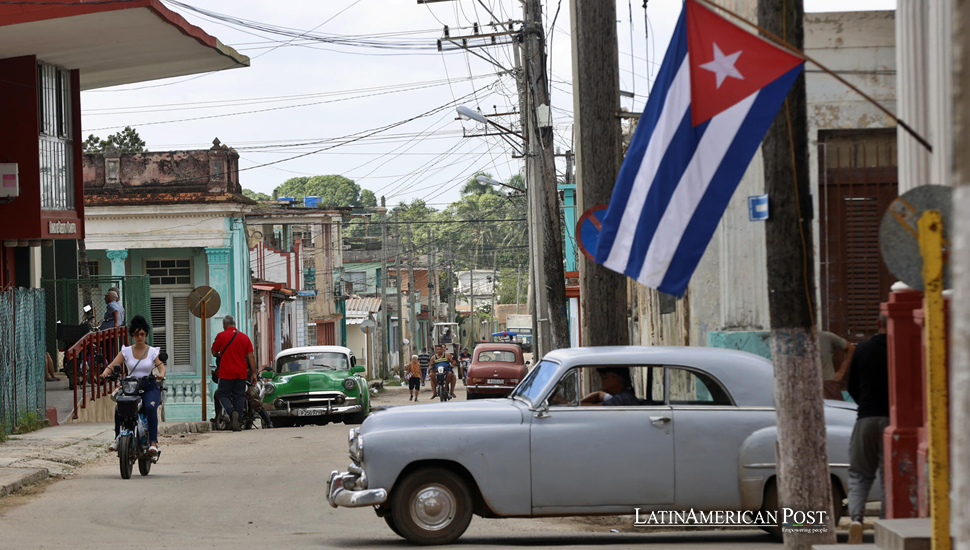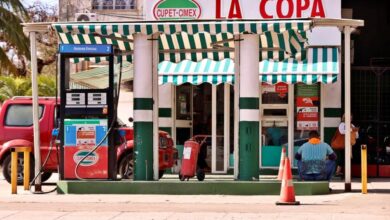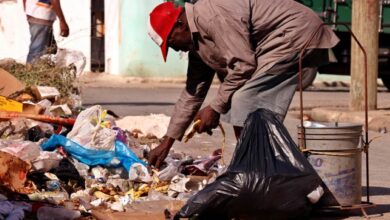The Embargo on Cuba is a Failed Strategy for Democracy

For over six decades, the U.S. economic embargo on Cuba has failed to restore democracy. Brazil’s stance that the embargo worsens Cuba’s energy crisis is correct, as it disproportionately harms the Cuban people and exacerbates existing challenges.
The Embargo’s Impact on Cuba
The U.S. embargo on Cuba, which has been in place for more than 60 years, was initially designed as a means of pressuring the Cuban government to transition toward democracy. It was meant to isolate Fidel Castro’s regime, curtail its economic power, and ultimately push for political reform. However, after decades of this policy, it is clear that the embargo has not succeeded in achieving its primary goal of restoring democracy to the island.
Instead, the embargo has become a tool of economic punishment that has contributed to the prolonged suffering of the Cuban people without producing significant political change. Cuba remains under one-party rule, and the embargo has done little to weaken the government’s grip. The persistence of the embargo has only deepened the isolation of Cuba from the global community, with little evidence to suggest that it is an effective means of promoting democracy.
The embargo has not only failed in its stated goal, but it has also fostered a sense of resistance within the Cuban government and its supporters. Rather than undermining the regime, it has become a rallying point, allowing the Cuban government to portray itself as a victim of American imperialism and to deflect blame for the country’s economic struggles.
The longer the embargo remains, the more obvious its futility becomes. It has proven to be an outdated Cold War relic, unable to adapt to the complexities of modern international relations. As Brazil’s government recently noted, the embargo exacerbates crises like Cuba’s current energy emergency, further highlighting its negative impact on the island.
Why the Embargo Aggravates the Energy Crisis
Brazil’s recent statement of solidarity with Cuba amid the island’s ongoing energy crisis underscores the broader implications of the U.S. embargo. As Cuba suffers from frequent blackouts and struggles to maintain a stable electrical grid, the embargo has only deepened the country’s vulnerability.
In early October, Cuba experienced a nationwide blackout, leaving the island without power for several days. The country’s fragile electrical grid, already weakened by years of underinvestment and the effects of tropical storms, could not withstand the strain. The blackout further disrupted an economy in steady decline, shrinking by 1.9% in 2023 and remaining well below pre-pandemic levels.
Brazil’s foreign ministry pointed out that the embargo, with its tight restrictions on trade and financial transactions, makes it nearly impossible for Cuba to access the resources it needs to rebuild its infrastructure and stabilize its energy supply. “The situation is aggravated by the economic embargo imposed by the United States, which for six decades has directly penalized the Cuban people,” read the statement. Brazil also condemned Cuba’s continued inclusion on the U.S. list of state sponsors of terrorism, which adds additional layers of sanctions and restrictions.
The embargo limits Cuba’s ability to import crucial materials like fuel, machinery, and technology needed to maintain its energy infrastructure. It also restricts foreign companies from doing business with Cuba, further isolating the country from potential investment opportunities that could help modernize its energy systems. As a result, when crises like blackouts occur, the Cuban government is left with few options for rapid recovery.
Brazil’s stance highlights the ongoing humanitarian cost of the embargo. Rather than targeting the Cuban government, the blockade worsens the daily lives of ordinary Cubans, who bear the brunt of the economic restrictions. In the context of Cuba’s energy crisis, it is clear that the embargo is doing more harm than good.
The Real Impact on the Cuban People
While the stated aim of the U.S. embargo has been to restore democracy in Cuba, its most direct and devastating effects have been felt by the Cuban people. The blockade has weakened Cuba’s economy, restricted access to essential goods, and made it increasingly difficult for the country to rebuild after natural disasters, such as the recent storm that left significant damage in its wake.
The damage was severe in the wake of Tropical Storm Oscar, which hit eastern Cuba in early October. At least seven people lost their lives, and thousands of homes and infrastructure were left in ruins. The Cuban government reported that more than a thousand homes were damaged, and agriculture—a critical sector for Cuba’s economy—suffered significant losses.
However, the embargo has severely hampered the Cuban government’s ability to respond to these disasters. With limited access to international markets and restricted funds, Cuba is left struggling to repair the damage and rebuild its communities. The embargo also creates barriers to importing vital materials, such as construction supplies and heavy equipment needed for reconstruction. In a country already grappling with an economic crisis, the additional strain of an energy emergency and natural disasters creates a humanitarian catastrophe.
Critics of the embargo argue that it is time to acknowledge the devastating toll it has taken on the Cuban people. Over the years, the blockade has restricted access to medicine, food, and other necessities, deepening poverty and reducing the quality of life for millions of Cubans. The embargo is not simply a political tool—it is an act of economic warfare that has exacerbated the suffering of the people it was supposedly designed to help.
Brazil’s solidarity with Cuba during this time of crisis points to the need to reevaluate the embargo’s humanitarian impact. Instead of continuing policies that isolate and harm ordinary citizens, the U.S. should consider the potential benefits of lifting the embargo and promoting engagement with Cuba.
Why Lifting the Embargo is the Right Move
The U.S. embargo on Cuba has not achieved its intended objective of restoring democracy; instead, it has worsened the country’s economic and humanitarian crises. The energy emergency Brazil highlighted is the latest example of how the embargo compounds existing problems, preventing Cuba from accessing the resources it needs to recover and develop.
Given the clear evidence that the embargo has not worked, it is time for the U.S. to reconsider its stance. Lifting the embargo would open the door to a new era of engagement between the two countries, offering a chance to rebuild diplomatic relations and foster cooperation on critical issues such as trade, energy, and human rights.
Furthermore, lifting the embargo would benefit not just Cuba but also the United States. Ending the embargo would allow U.S. businesses to tap into the Cuban market, creating economic opportunities for American companies while also providing the Cuban government with the resources it needs to stabilize its economy. Increased trade and investment could improve Cuba’s infrastructure, education, and healthcare systems, all of which would contribute to better living conditions for the Cuban people.
Rather than isolation, engagement is the key to fostering positive change in Cuba. By lifting the embargo, the U.S. would have the opportunity to promote reforms from within, supporting grassroots movements for democracy and human rights while avoiding the harmful consequences of economic sanctions. This shift in approach would align with the broader trend of diplomatic normalization seen across Latin America, where countries like Brazil are advocating for more constructive relationships with Cuba.
Also read: Expanding the Arms Embargo in Haiti is a Double-Edged Sword for Law Abiding Citizens
The embargo on Cuba has proven to be an ineffective and harmful policy. It has failed to bring about democratic change, and it has inflicted unnecessary suffering on the Cuban people. Brazil’s call to acknowledge the embargo’s role in worsening Cuba’s energy crisis is a reminder that it is time for the U.S. to pursue a new path—one that prioritizes engagement, cooperation, and the well-being of the Cuban people. Ending the embargo is not just a moral imperative; it is the only realistic way to build a brighter future for Cuba.





